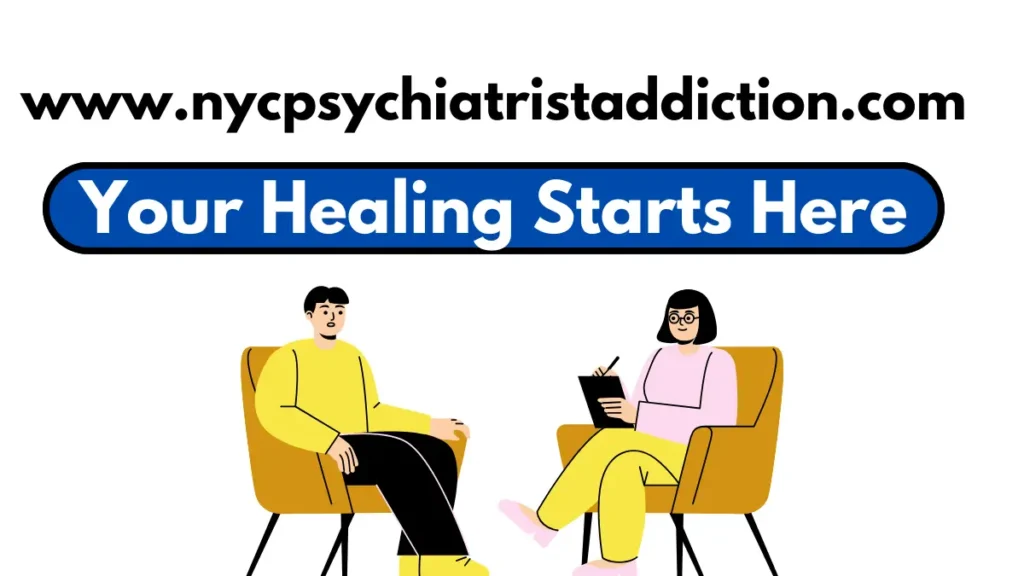Navigating Mental Health and Addiction: Insights from New York City Psychiatrists
As awareness of the interplay between mental health and addiction continues to grow, the contributions of NYC psychiatrists will remain essential in the journey toward recovery.

Addiction is a complex and multifaceted issue, often intertwined with various mental health disorders. In New York City, a vibrant metropolis with diverse populations, psychiatrists play a crucial role in addressing both addiction and mental health challenges. This article delves into the insights and strategies employed by NYC psychiatrists in navigating the intricate relationship between mental health and addiction.
The Dual Nature of Addiction
Addiction is not just a matter of substance use; it often coexists with mental health conditions such as anxiety, depression, and PTSD. Psychiatrists in NYC recognize that to effectively treat addiction, it is vital to address the underlying mental health issues. This dual diagnosis approach allows for a comprehensive treatment plan that targets both addiction and mental health, leading to better patient outcomes.
Comprehensive Assessments
NYC psychiatrists utilize detailed assessments to understand the individual’s history, including substance use, mental health conditions, and life circumstances. These assessments help in creating a tailored treatment plan that suits the specific needs of the patient. Through interviews, questionnaires, and standardized assessments, psychiatrists gather essential information to inform their clinical decisions.
Evidence-Based Treatment Approaches
Psychiatrists in New York City employ a variety of evidence-based treatment modalities to address addiction and co-occurring mental health disorders. Cognitive Behavioral Therapy (CBT), Dialectical Behavior Therapy (DBT), and Motivational Interviewing (MI) are commonly used techniques. These therapies not only help patients develop coping skills but also encourage self-reflection and personal growth.
Medication-Assisted Treatment (MAT)
For many individuals struggling with addiction, medication can play a significant role in recovery. NYC psychiatrists often incorporate Medication-Assisted Treatment (MAT) as part of a comprehensive treatment strategy. Medications such as buprenorphine and methadone for opioid addiction, or naltrexone for alcohol use disorder, can help reduce cravings and withdrawal symptoms, making it easier for patients to engage in therapy and recovery programs.
Support Systems and Community Resources
NYC psychiatrists understand that a robust support system is essential for successful recovery. They often collaborate with social workers, addiction counselors, and community organizations to provide patients with access to resources such as support groups, housing assistance, and job placement services. This holistic approach fosters a supportive environment that encourages sustained recovery.
Addressing Stigma and Barriers to Treatment
Stigma surrounding addiction and mental health can be a significant barrier to seeking treatment. NYC psychiatrists actively work to combat stigma by promoting awareness and understanding of addiction as a medical condition rather than a moral failing. They engage in community outreach and education, helping to create an environment where individuals feel safe and supported in seeking help.
The Importance of Follow-Up Care
Recovery from addiction is a lifelong journey, and follow-up care is crucial for maintaining sobriety. NYC psychiatrists emphasize the importance of aftercare, which may include regular check-ins, ongoing therapy, and participation in support groups. This continued support helps individuals navigate the challenges of recovery and reinforces their commitment to a healthier lifestyle.
Conclusion
Navigating the complexities of addiction and mental health requires a multifaceted approach that NYC psychiatrists are uniquely equipped to provide. By understanding the dual nature of addiction, employing evidence-based treatments, and fostering supportive environments, these professionals play a vital role in helping individuals reclaim their lives.
What's Your Reaction?



















.jpg)